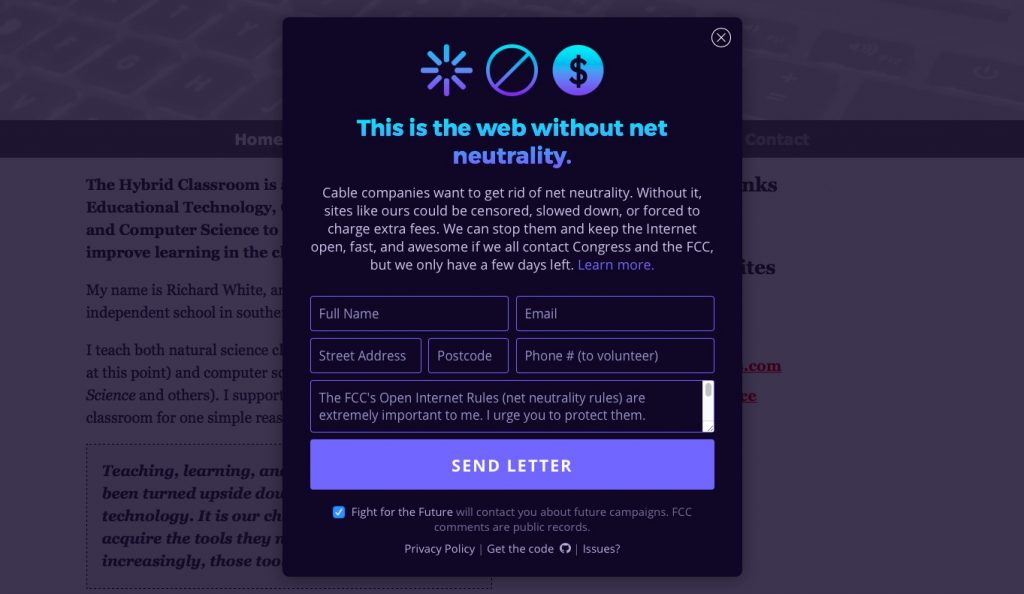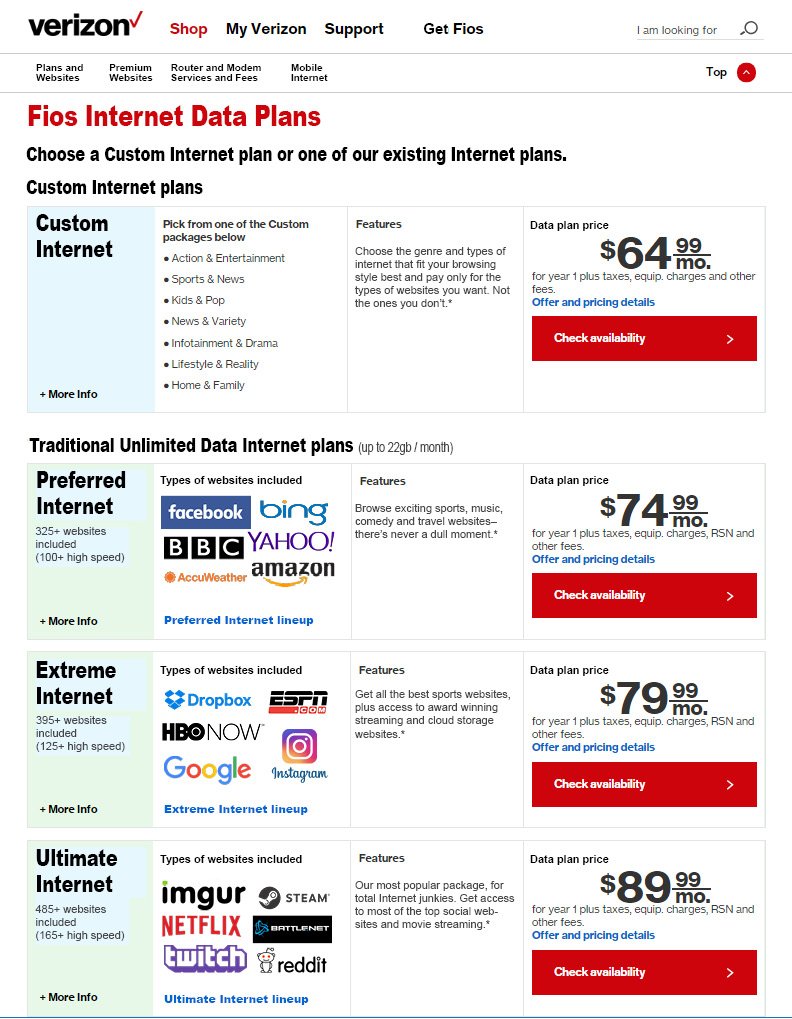Battle for the Net
==================
by Richard White
—————-
2017-07-12
———-
This is the second time in the last few years that I’ve devoted some time and some of my website resources in the interest of maintaining internet neutrality.
If you already know what net neutrality is, you should go to battleforthenet.com and do something about it. Write a letter using their form, donate some money, and call your congressional representatives. These are all things that cost little in the way of time and/or money, and are vitally important to maintaining the way the Internet—and therefore your world—works.
If you’re not sure on the details, or maybe have only heard the term but nothing more, here it is, in a nutshell.
Access to the Internet isn’t (usually) free: most people I know pay an Internet Service Provider (ISP) like Charter, Spectrum, Comcast, etc. for home access to the Internet. You probably have a service plan that vaguely promises deliver your internet content and some minimum speed. But once you’re “on the Internet,” anything and everything goes. There are no restrictions on how you can travel the World Wide Web: you can go to Facebook, you can surf websites, you can buy plane tickets, you can watch Netflix, you can register for college classes, you can watch YouTube, you can (if you’re so inclined) visit porn sites.
The fact that your ability to navigate the Internet unencumbered and unregulated, regardless of what you use it for, is called “net neutrality.”
Wikipedia, quoting the New York Times, describes it this way:
Net neutrality is the principle that Internet service providers and governments regulating the Internet should treat all data on the Internet the same, not discriminating or charging differentially by user, content, website, platform, application, type of attached equipment, or mode of communication.
This view of the Internet is one that considers it as a utility, and therefore subject to some degree of regulation as such. The convention of net neutrality was affirmed by the Federal Communications Commission (FCC) during Obama’s administration.
Here’s a non-Internet example where regulation helps us. You telephone service (landline or cellular) delivers phone calls to your phone, regardless of who they come from. Nobody can pay for “better access” to your phone number. A business can’t pay for increased access to your phone number so that unsolicited phone calls are favored over personal calls. We have “phone neutrality.” There have been cases where phone companies have blocked access to certain types of phone calls, prompting FCC intervention.
The Internet-as-utility means that telecommunications companies delivering that service must obey anti-discrimination and anti-blocking rules. In the first months of his administration, however, President Trump appointed former Verizon attorney Ajit Pai as chairman of the FCC, with a vow to “reverse this overreach” of regulating net neutrality.
What happens if your Internet provider doesn’t have to follow net-neutrality rules? Selected businesses benefit (or suffer) as the provider decides how to charge for access, or how much to favor certain businesses over others.
This is currently the situation with your cable/satellite TV provider which sells you a subscription to their services. Access to their cable or signal is just the start, however. Access to ESPN costs more. Access to HBO costs more. Access to premium services costs… a premium. (This never-ending “up-sell” is in part responsible for the rise in “cable-cutters.”
Along those lines, then, here’s one likely scenario in the Brave New World of a non-neutral Internet, as imagined by an unknown author (image is making the rounds on Twitter):
If we get rid of net neutrality, will your Internet provider really interfere with your service? This isn’t a hypothetical question. In one case, Comcast was slowing access to certain types of content. In another, AT&T blocked users access to Apple’s FaceTime service so that only users with a certain type of plan could access the application. It is because of the protections currently afforded by net neutrality that these corporations have been prosecuted for these actions.
Clearly, the Internet needs the regulatory protection of the FCC.
The wonderful innovations that have been born and flourished on the neutral Internet have been able to do so, in large part, because of lack of restrictions on the Internet. It’s telling that Trump claims to be in favor of “American innovation, job creation and economic growth,” but only insofar as the large media corporations are concerned. Twitter, the president’s primary means of communication, was spawned on a neutral net, the very net he is bent on corrupting.
The battle for net neutrality is “huge.” Please join the fight.

